|
A still from Ebs Burnough’s The Capote Tapes (2021) When George Plimpton wrote his biography of American novelist Truman Capote, he collected hours of taped interviews with Capote himself, as well as “friends, enemies, acquaintances, and detractors.” The tapes feature a who’s who of literary and celebrity circles, the very company Capote both kept and critiqued. The fascinating life and career of Truman Capote gets the biographical doc treatment in The Capote Tapes, which for those such as myself who are mostly unfamiliar with his work, is an enjoyable scattering of memories. Using Plimpton’s never-before-heard audio footage as the backbone, filmmaker Ebs Burnough spans Capote’s tough beginnings, vulnerable circumstances, and meteoric rise to a world among gossiping socialites and literary influences. At the core is the subject’s influence and works, including his final unfinished novel Answered Prayers, widely considered a precursor to reality TV and pop culture gossip. The Capote Tapes is a well-made chronicle of a public figure that, while overwhelming with material, retains plenty of mystery about its subject.
The Capote Tapes weaves through the bustling New York social scene populated by some of America’s most influential public figures. Front and center is Capote: novelist, screenwriter, playwright, actor. His short stories, novels, and plays have seen screen adaptations including Breakfast at Tiffany’s (1958) and In Cold Blood (1966). The documentary glosses over the immersive research that went into building his novel In Cold Blood, focusing more on the manuscript that would never fully come. Only three chapters of Capote’s sought-after Answered Prayers were posthumously published…excepts of a novel nowhere to be found, or one that doesn’t exist? One of the brightest spots of The Capote Tapes is focusing on this enigmatic piece. Answered Prayers was seen as Truman biting the hand that fed him, but really he was immersed in high society as a writer. The humor in his writing spoke of being near them not because they led particularly interesting lives, but because he could write something from it. Contempt is said to bleed through when he writes about the unhappy rich and famous. Answered Prayers becomes an interesting facet of this documentary. Capote’s former friends, who are heard earlier speaking very highly of him, then express disappointment and hatred at him because of how he writes about them. The broken trust and feelings of betrayal build to a point of exile in his life. From unraveling on national television, to drinking and drugs at Studio 54, the spectacle of Truman’s life is a subject often touched upon by Ebs Burnough. Even more so than the writer’s career and literary works. While featuring compelling tapes from former friends, high society members, admirers and observers alike, The Capote Tapes suffers from an overwhelming amount of material. The documentary is pulled in so many different directions, moving its center around and lacking a clear focus. The floating heads of family members and friends each have their own piece to say, but ultimately contribute to multiple threads that don’t fully come together. What the documentary does make clear is how enigmatic and interesting Truman Capote’s life was. Similar to his final novel Answered Prayers, The Capote Tapes has unfinished business. The missing pieces are found not from Ebs Burnough’s lens, but live on in the life Capote led, in the works he left behind. The Capote Tapes opens on VOD/Digital in Canada on October 26 through levelFILM.
0 Comments
A still from Jennifer Abbott's The Magnitude of All Things (2021) Stories about the urgency of climate change and its destruction in various forms are a striking reminder that now is the time to act. Wildfires are raging, sea levels are rising, more species are going extinct. For the people on the frontline of devastating effects, the climate crisis is not a ‘future’ problem to kick down the road. It’s happening now. The time for action is now. The destruction of mother earth is personal destruction, and the onus is on collective action. The Magnitude of All Things, a new documentary by Jennifer Abbott, draws parallels between personal and planetary experiences of grief. The worldwide loss of livelihood woven together with the loss of someone who meant the world to somebody else. When Abbott lost her sister to cancer, her grief drove her to action. The Magnitude of All Things is a deeply personal letter to the continuous cycle of grief and coming out the other side with an open curiosity to live through each day to the fullest.
Hope can be a double edged sword. To hope for the best, enables the assumption that everything will be okay, that everything will work itself out. When all hope is lost, sometimes that is what pushes intention over the edge. When hope goes, action begins. Abbott’s documentary treads a very fine line between the different motivators. What propels her as a filmmaker, weaving into moments of reenactment to honor her sister’s spirit. Abbott also explores what propels various climate activists from around the globe, including Greta Thunberg who gives some insight into how her course of action began from attending school to leading enormous marches. Watching hope unexpectedly surround her as crowds populated with younger generations. Stories from perspectives such as Thunberg’s merge often with Abbott’s own recollections about her sister’s life and the childhood they shared. So much so that the parallels are jarring. The shift from real-life footage and interviews to reenactments of personal history feel like multiple projects rolled in one. Though the raw emotion is touching, the reenactments play out as dramatic commercials and only emphasize an already strong lack of subject focus. What ties all the perspectives together is interesting…the magnitude of all things, the collective responsibility of human beings to protect this planet. Firsthand testimony shows reflections of personal, ecological, cultural loss. The threat of resources destroyed before your eyes, the uncertainty of not knowing the future are such emotionally charged threats. There’s a moving nostalgia to some of the testimony, like being wistful about not getting to experience a way of life that was more naturally resourceful from an environmental state. The Magnitude of All Things doesn’t quite come together in the way that it has the potential to, but Abbott takes an interesting route in bridging an empathetic perspective of personal loss with that of planetary grief. The documentary is an urgent reminder of the many people protecting the rights of nature, which is not strictly environmental. It’s a protection of self, family, forests, ecological systems, ultimately the world around us. With a resounding message that lays a path from grief to action, The Magnitude of All Things listens to the voices of a world being lost before our eyes. The Magnitude of All Things screened as part of the 2021 Devour! Fest program. The 11th edition of Devour! The Food Film Fest runs from October 18-24, 2021. Visit devourfest.com for tickets and a full program lineup. A still from Joshua Tickell and Rebecca Harrell Tickell's Kiss The Ground (2021) What if there was an alternative path to solve the climate crisis? A simple solution for the here and now, as actor Woody Harrelson narrates, is right under our feet. It’s in the earth around us and the ground beneath us. Somewhere deep in the roots of co-directors Joshua Tickell and Rebecca Harrell Tickell’s documentary Kiss The Ground is an informative intervention about protecting the world’s soil. How soil is a hopeful solution to stabilizing climate, replenish lost ecosystems, and create abundant food supplies. For a while, the focus seems concentrated on various leaders in agriculture. Notably as they present conservation practices to American farms in the hopes of planting a regenerative seed. Inexplicably along the way, the Tickells shift to a sea of eco-conscious celebrities who seem well-meaning, but their presence brings no substance to the down-to-earth message at the core of this climate documentary. Kiss The Ground takes a fact-based approach on practices that gets distracted by conflicting ideas on how best to present them.
Kiss The Ground plants seeds of information on healthy soil and the global issue of massive erosion. Including the origins of chemical toxins and several interviews with modern-day leaders in agriculture, regeneration farming emerges as a critical piece of the climate puzzle. The focus on this piece remains abundantly clear, but what’s missing from the puzzle is the Indigenous origins of regenerative agriculture approaches for several hundred years. Indigenous Americans protected and preserved land through practices that have since advanced sustainable agriculture. Such as permaculture, working with the earth and ground to generate healthy soil. A plethora of star-studded appearances explaining the innovativeness of composting and toasting a return to Eden feels out of touch with the Indigenous history of regenerative agriculture. Soothing as Woody Harrelson’s narration is, one of the key factors for why Kiss The Ground feels disjointed is the unexpected switch to focus on celebrity endorsements. Listing all the names would waste as much time as the documentary does by focusing on their well-intentioned but distracting perspectives. It’s a puzzling choice given the Tickells’ strength rests on following the likes of conservation agronomists and science teams from different parts of the world. While helpful to gather up various sides to the climate crisis response, from farmers and regenerative ranchers to ministry of agriculture leaders, it’s uncertain where a hopeful Jason Mraz song fits in. Not that using one’s platform to spread awareness should necessarily be frowned upon, but there’s a disconnect in using the perspectives of wealthy white people to explain and show the benefits of a practice that’s been done by Indigenous Americans for thousands of years. While faulty in its focus, Kiss The Ground sheds light on how historically, chemical toxins and sprays date back to Germany rebranding chemicals as pesticides for American farms. What emerged was the vicious cycle of industrial agriculture, working against the earth and stripping soil of its nutrients. To break the cycle, the documentary cites regenerative farming to draw down carbon and improve plant growth. As well, the Tickells look to how a city such as San Francisco leads the way in terms of collecting food scraps, turning it into compost, and getting it to farms. There’s a lot of focus on educating farmers and planting the seed of protecting soil’s health in the name of regenerative agriculture. While distracting in its scope, Kiss The Ground does excel at establishing a clear narrative and providing a pathway for people of today to protect future generations. As conveyed in a hopeful concluding montage of the younger generation prepared to appreciate the earth around us and fight for a healthy planet. Messages around togetherness of meals and urgency to protect the Earth's nutrients among festival highlights A still from Jennifer Abbott’s The Magnitude of All Things (2021) Devour! The Food Film Fest is back for another year! Combining cinematic excellence with interactive cooking workshops, Devour Fest is a transformative food and film experience. The annual 6-day festival returns with a hybrid format of in-person attendance at its base in Wolfville, Nova Scotia, along with virtual attendance for patrons across Canada. Over the 6 days, there will be 47 events including film screenings, special programs, and cooking workshops. Devour! is Canada’s largest food & film festival, and the biggest of its kind globally. In 2019, Devour! welcomed a record 14,463 food and film lovers to Wolfville. As a response to unprecedented times, the festival’s theme of Global Indigenous Cinema & Cuisine will reach audiences as far into the world as possible. A small segment of programming is geo-blocked to Nova Scotia and Canada. Among the festival highlights are women-led documentaries and short films that convey resonating messages around the togetherness of meals, the accessibility to healthy eating, and the urgency to protect the earth’s nutrients. Lina Li's Have You Eaten? exudes the warmth and comfort of a family uniting during the pandemic. Living in downtown Toronto to attend school, Lina Li returns to her home in Thornhill and to her mother's cooking. In this personal five-minute short film, Lina and her mother share intimate conversations about immigration to Canada, barriers to communicating, embracing cultural dishes, and the power of mother-daughter love. 'Have You Eaten?' is a lovely reflection of how sharing meals, and the safety of home, brings a family together. Linda Mai Green's Chishkale: The Blessing of the Acorn centers on Bernadette Smith, from the Manchester band of Pomo Indians. She weaves the story of her Tan Oak conservation efforts in Northern California into a contemporary Indigenous dance piece created to honor the sacred traditional food of California Natives. The Acorn Dance is performed on Sogorea Te’ Land Trust in Huichin on Ohlone Territory (Albany, CA). This five-minute short film is a personal slice of life about honoring ancestors, the responsibility of continuing tradition, and feeding the Earth through cultural practices. From Canada, Rebecca Thomassie’s short film Names for Snow follows Thomassie, an Inuk woman, around Kangirsuk as she learns the 52 Inuktitut words for snow. From the USA, co-directors Tracy Nguyen-Chung and Ciara Lacy bring their short film Connection centering on fly fishing. On a trip to Washington to cast for steelhead, lifelong angler Autumn Harry unpacks what it means to overcome her own image of fly fishers, and uses the sport to fight for conservation. A still from Linda Mai Green's Chishkale: The Blessing of the Acorn (2021) On the documentary feature side, also accessible to viewers across Canada during the festival, cover different sides to the frontline of climate change. Co-Directors Rebecca Harrell Tickell and Joshua Tickell explain why regenerating the world’s soils is a hopeful solution to stabilizing climate, replenish lost ecosystems, and create abundant food supplies. Their documentary Kiss The Ground, narrated and featuring Woody Harrelson, plants seeds of information on healthy soil and the global issue of massive erosion. Soothing as Harrelson's narration is, the plethora of star-studded appearances following his lead feel distasteful and distracting from the Indigeous origins of regenerative agriculture approaches. Jennifer Abbott’s new documentary, The Magnitude of All Things, merges stories from the frontlines of climate change with recollections of the loss of her sister, drawing intimate parallels between personal and planetary grief. Nations featured are Nunatsiavut, Kichwa, Pachamama, Sápara Nation, and Kichwa First People of Santa Ana.
“Devour! The Food Film Fest is an important vehicle for advancing awareness of Indigenous culture by celebrating First Nation communities, filmmaking, and food,” says Chief Sidney Peters of the Glooscap First Nation. “Glooscap First Nation has successfully collaborated with the festival in years past to celebrate Mi’kmaq culture and bring this experience to visitors from around the world. I’m looking forward to our continued partnership as we celebrate Global Indigenous Cinema and Cuisine at Devour! 2021 and for years to come.” The 11th edition of Devour! The Food Film Fest runs from October 18-24, 2021. Jason Isaacs, Martha Plimpton, Reed Birney, and Ann Dowd in Mass (2021) Fran Kranz’s searing directorial debut Mass explores the aftermath of a school shooting from the different perspectives of two couples in mourning. A conversation piece through and through, Mass is carried by four powerful performances of heart shattering magnitude. Set almost entirely in one room, the dialogue takes center stage with a fly-on-the-wall level of intimacy. Jay and Gail (played by Jason Isaacs and Martha Plimpton) agree to meet with Richard and Linda (played by Reed Birney and Ann Dowd) to gain a semblance of closure after a tragedy involving the sons of both sets of parents. Everyone wants to heal. Everyone wants to move forward with a cathartic release. Is this meeting how to go about it? The families’ stories play out in the vein of a stage production, with each actor ready to partake in the collaborative exercise. While the stagy directions interrupt the flow of conversation at times, the magnificently openhearted ensemble cast make Mass a resonating punch in the gut. It’s a moving story about grief, forgiveness, and the unflinching emotional journey towards acceptance. The film opens with the interior of a church, a calm before the storm as a back room is being set up for what’s bound to be an emotional conversation. Judy (a totally endearing Breeda Wool) arranges for a table with some chairs in the center; coffee and snacks tucked away at another table in the corner. She constantly asks if this setup is ok, if they’ll need anything else. Kendra (Michelle N. Carter), a mediator for one of the families, rearranges the chairs so that two are on either side of the table. She places a tissue box in the center. There’s an air of uncertainty hanging over the room. The details in Mass say so much. The lived-in buildup to the main event of this film creates a lot of tension and nervous anticipation for four-way dialogue. There’s an awkwardness and hesitance when both couples walk into the room. While Mass is of course a dialogue-heavy piece, so much is said in what the characters are suppressing. It’s understandable for them to awkwardly step around the traumatic incident that has brought them together in the first place. Each of their grief manifests in different ways. How do they begin addressing the grief they have experienced for years? The conversation takes shape in a way unbeknownst to everyone in the room. All they know is what happened, and how they feel about it. The characters are developed through the pieces of their lives that they choose to share with one another. Kranz trusts the actors entirely to carry a conversation with small details, silences and glances. Through their performances, the aftermath of the shooting are revealed. Public statements (and lack thereof), lawsuits, and letters fall under emotional scrutiny. One of the strongest features of this film is that it unfolds from a place where life has come to a halt. Mass is about four people in a room, each bringing their own perspective to the table which moves the conversation in often erratic ways. At its worst, the dialogue feels a little too staged and orchestrated. But ultimately the choreography of words falls in line with how each character walks into that room with some impulse to say their piece. Even if it may not come out the way they envision. Jason Isaacs in Mass (2021) Martha Plimpton and Ann Dowd in Mass (2021) Jay and Gail walk in full of blame in their hearts. Ready to assign Richard and Linda with the burden of guilt. For years since the shooting, Jay and Gail have understandably vilified this other couple to the point of not considering them as capable of human emotion. Richard and Linda walk in with fear and uncertainty scattered in their eyes. It’s a compelling contrast to Jay and Gail who appear to have a more purposeful approach, wanting answers that Richard and Linda don’t have. All four performances excel at capturing the unspoken tension and differing manifestations of heartache. Jason Isaacs delivers far and away his best performance to date. A seething fissure of emotions that stuns when reaching the surface. Being less familiar with Martha Plimpton’s work, her fantastic performance is a great reminder of her talent. You can tell that when Gail walks into the room, she’s doing so with purpose in her eyes. But over the course of the conversation she loses grip on how she’s going to achieve any semblance of a satisfying outcome. It’s heartbreaking to watch. Reed Birney has the least showy role of the quartet, which makes his work even more impressive as his impact is quietly devastating. Then there’s the great Ann Dowd. A magnetic force of nature who somehow outdoes herself as Linda, revealing new depths of her talent especially when in one-on-one correspondence with Gail.
Fran Kranz’s direction lives in the moment and stays with the characters. There are no flashbacks to the past, a smart move on Kranz’s part. Once the conversation begins, the only break from the room is an occasional image of a mountain landscape; front and center, a ribbon tied to a fence is drifting in the wind. It appears and reappears in what feels like random moments. In retrospect, perhaps a ribbon of awareness, a symbol of love and support without uttering a word. Often with grief it is hard to find the words to explain its all-consuming nature. Mass excels at showing people from opposite sides of a tragedy come together for one moment in time when healing and forgiveness feel possible. There is no telling how their future correspondences will be, and while each individual has their own process, the power of seeing them hold onto one another’s words in the remnants of grief is so deeply moving. Driven by four tremendous performances, Mass is an urgent writing-directing debut sparking resonating conversation and empathy. Mass releases theatrically across Canada on October 15th. Penn Badgley and Victoria Pedretti in You: Season 3 (2021) courtesy of Netflix Based on Caroline Kepnes’ best-selling novel of the same name, the premise of Netflix thriller series You is the foundation for how obsessive killer Joe Goldberg (Penn Badgley) operates, all in the name of true romance. The past two seasons have seen his pattern play out, with enough twists and turns to keep things interesting. He becomes transfixed with a woman, goes down a rabbit hole to find out everything about her, and is determined to eliminate anyone standing in his way of finding love. Joe’s narration puts the story inside his head, charting his emotions and thought process for why he feels like he’s right. The series starts to find its stride in season two, avoiding repetitiveness by introducing a fresh start in Los Angeles with Love Quinn (Victoria Pedretti). Love’s complicated character proves to be a game-changer, equally psychotic as she turns the tables on Joe and leaves room for more. The writing team of You season 3 take advantage of an opportunity to explore Love’s murderous spree, showing how this affects her and Joe’s marriage and joint parenthood in a suburban setting. The couple learns surprising layers about each other, while also relying on patterns they’ve come to know from being together. Has Joe really met his true match, or is his only chance at a fresh start one without love? Couple’s therapy can only do so much…Behind the white picket fences of small-town living is You’s most thrilling season yet. The biggest part of why You season 3 feels more fully realized than its predecessors is bringing the character of Love Quinn fully on board. Most of the unpredictability derives from her trajectory and the way she utilizes her surroundings, whereas Joe’s character has greater tendency to tread familiar/derivative territory. The two of them together, now married and raising their baby Henry in Northern California, raise the stakes under the roof of a new setting. The season makes a great decision in moving away from sprawling places like New York City and Los Angeles. The Quinn-Goldberg residence lies in the Northern California enclave of Madre Linda, a small suburban outskirt where a slowed-down lifestyle affords more time for the neighbors to know everyone’s business. There are only so many places to find solitude, a sentiment that Joe and Love’s next-door-neighbor Natalie (Michaela McManus) knows all too well. Getting to know her holds a mirror to Joe’s perpetual feeling of the grass being greener on the other side. The picture-perfect Quinn-Goldberg marriage is a suburban purgatory, and Joe’s loyalty to his own heart above all complicates their future. Penn Badgley and Victoria Pedretti in You: Season 3 (2021) courtesy of Netflix Michaela McManus in You: Season 3 (2021) courtesy of Netflix Built on a foundation of secrets and lies, season 3 excels at lifting the facade of an idealized life. Having a perfect marriage and family are romanticized over everything else, to the detriment of what’s real. The suburban setting is the perfect playground for this story, where so much rides on keeping up appearances and ultimately lying to yourself in order to do so. Watching Joe and Love attempt a cookie cutter lifestyle is entertaining and disturbing in equal measure, especially with the purity of baby Henry in the background. The facade of Joe and Love’s marriage is also lifted; moving to a setting that sounds mundane and typical only intensifies their attempts to fit in and gain acceptance. Madre Linda is a place where any deviation from social acceptance would be cause for ruin, making everyone’s hidden truths valuable weapons for self-destruction. Joe and Love may know plenty of each other’s dark murderous secrets, but not everything. The more Joe wants to reign himself in for the sake of his son, the more unpredictable Love becomes. Reprising their roles, Penn Badgley and Victoria Pedretti give their most impressive performances of the series as Joe and Love. Giving them more layers to work with, the new season draws parallels between the two characters and gives insight into why they are able to keep up with each other. Both are unraveling in self-sabotage, unhappiness, and issues with their parents. With flashbacks to Joe’s troubled childhood, and present-day scenes with Love’s mother Dottie (Saffron Burrows), family scars dictate much of the couple’s decision-making with Henry. Season 3 puts Joe and Love in some new lights, giving Badgley and especially Pedretti room to flex a wider range of muscles. Love’s rollercoaster character takes far more of a responsibility this season, which makes each episode more and more impulsive. Joe’s character maintains a steady soundboard of insightful narration, new obsessions, and themes of toxic masculinity. Tati Gabrielle in You: Season 3 (2021) courtesy of Netflix Shalita Grant and Travis Van Winkle in You: Season 3 (2021) courtesy of Netflix The surrounding neighborhood of bloggers, entrepreneurs, and social media influencers is catnip for Joe’s taunting narration. You season 3 introduces a mostly new cast of supporting characters who complicate the leads’ decisions, cloud their judgement, and aren’t as unassuming as one would think. Mostly residents of Madre Linda, they have their own secrets and lies that can throw a wrench in even the most carefully planned situations. Among the standouts are Tati Gabrielle as Marienne and Dylan Arnold as Theo, each of whom have a bigger part to play in flipping the script as the season unravels. The season also introduces two of the most entertaining characters yet, Sherry and Cary Conrad. The Conrads, played by Shalita Grant and Travis Van Winkle, are the perfect playful anecdote to the Quinn-Goldbergs. Their performances play up the ridiculousness of social media obsession but neither of them, Grant especially, allow for their characters to become caricatures which makes their trajectory a lot more gratifying.
You season 3 pulls a dangerously addictive front row seat to crumbling relationships in a hellish cookie cutter suburbia. Old habits die hard, and this new chapter does its best to maintain surprising twists that push the narrative in new directions. Building on the psychological edges and satirical commentary of the first two seasons, there’s more to the revelations than throwing in bombshells for the sake of it. Season three excels in conveying dual roles between Love and Joe. Both manipulative in their own right, the game becomes who is playing who at any given moment. The Quinn-Goldberg duo, along with memorable supporting characters aiming to get one step ahead of them, have enough tricks up their sleeve to maintain binge-worthy chills and thrills. You season 3 releases exclusively on Netflix October 15th. |
Archives
June 2024
Categories |

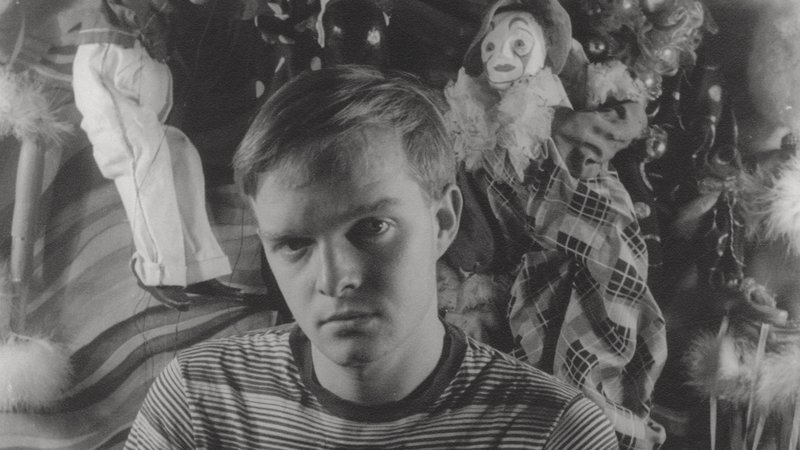
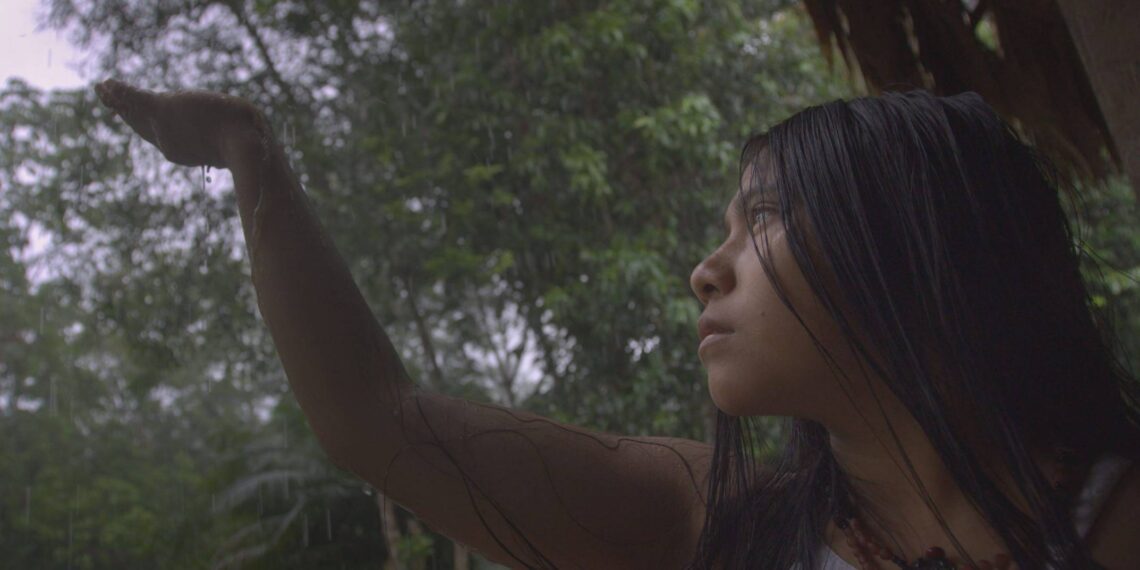
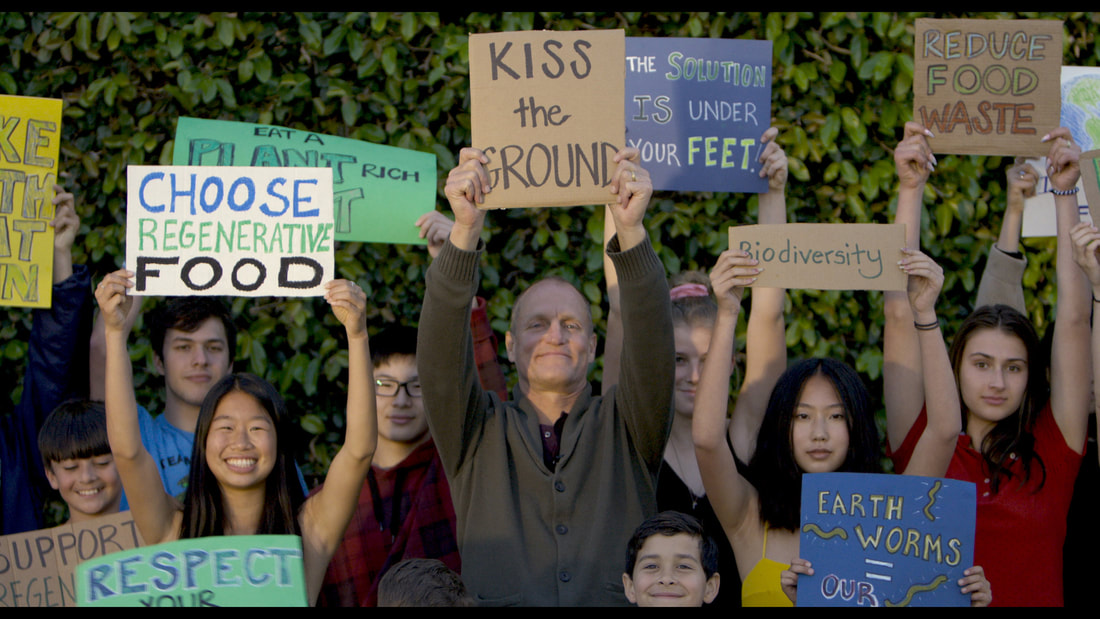
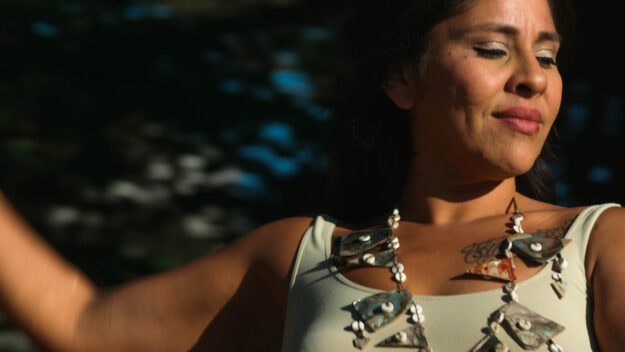
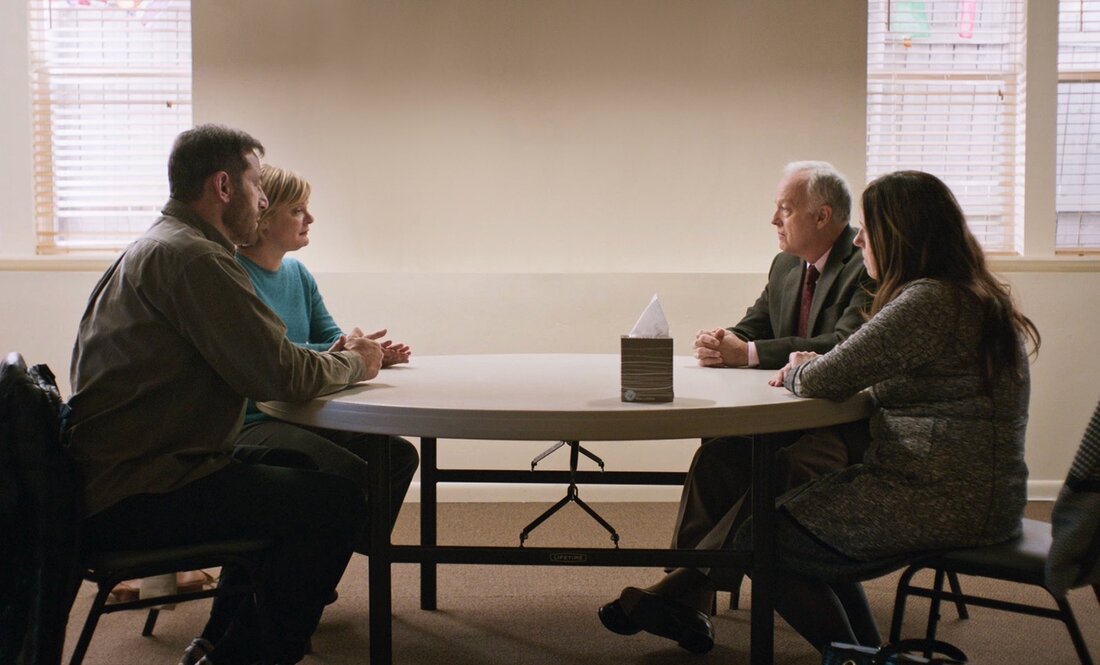
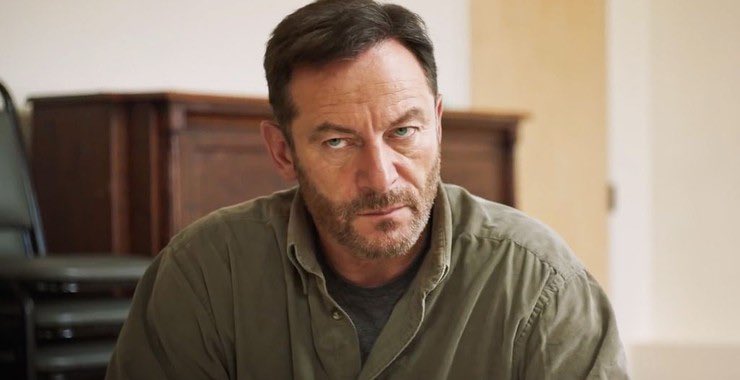
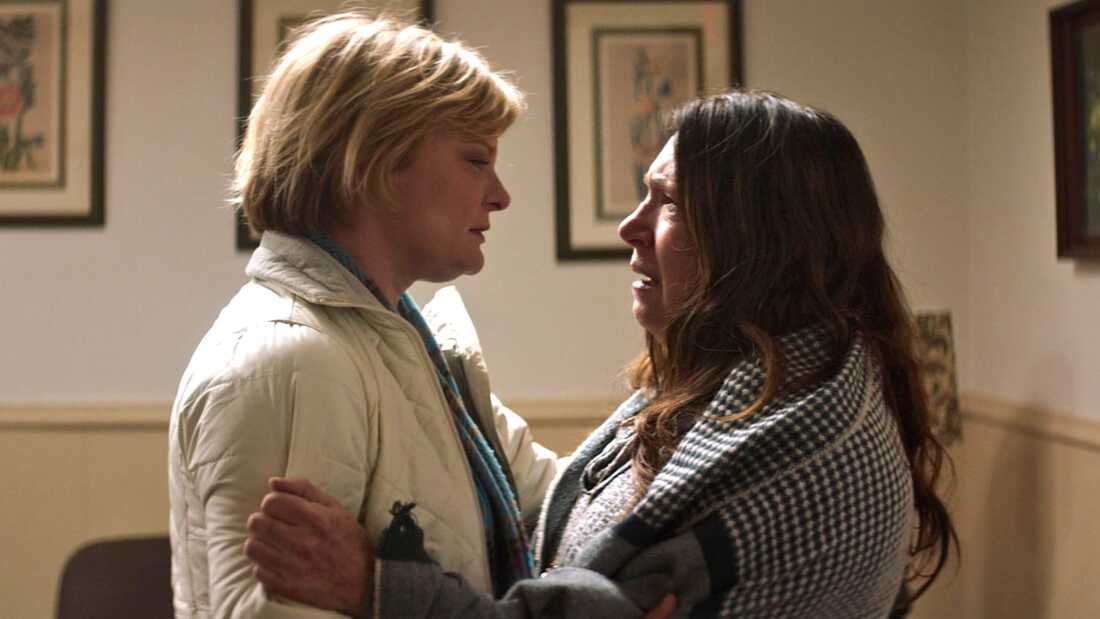

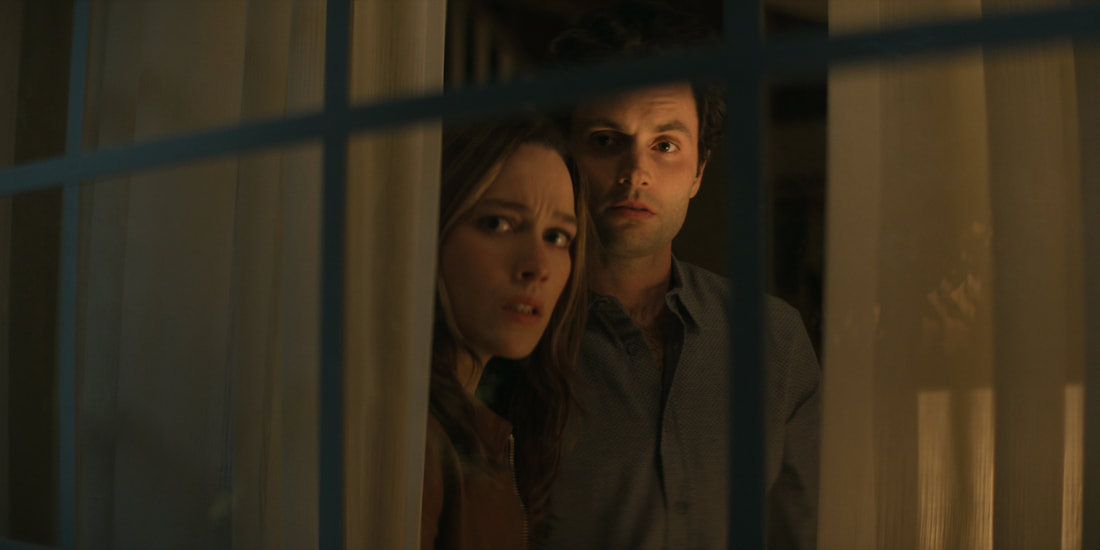
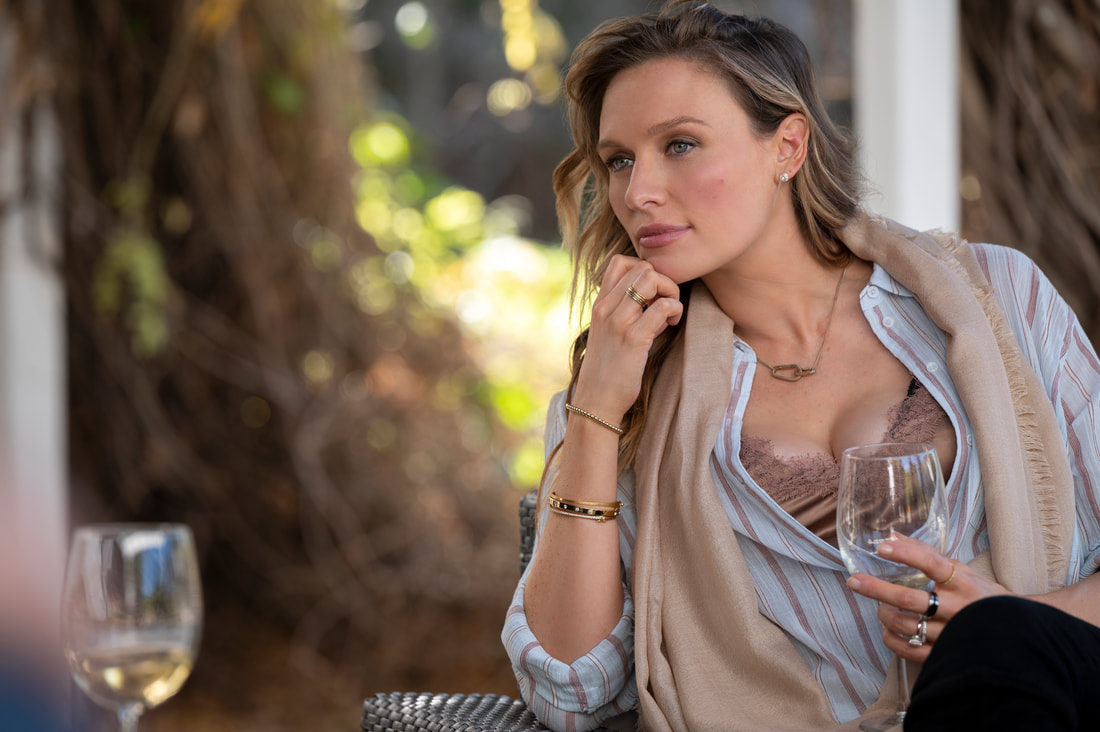
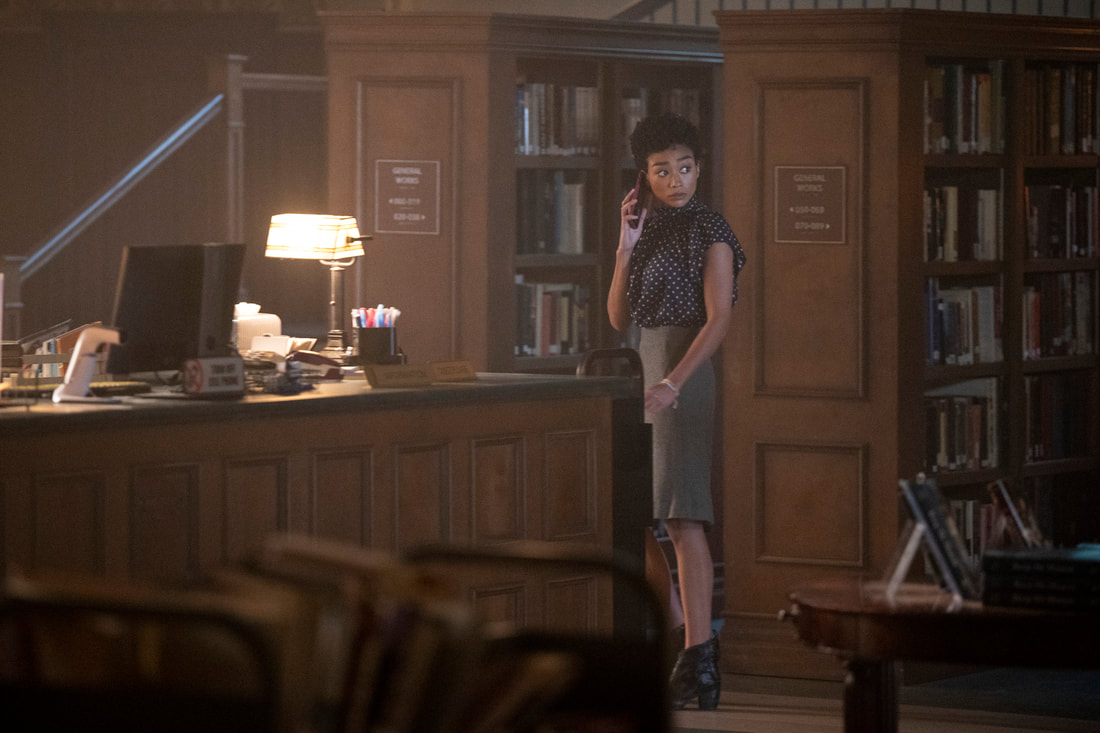

 RSS Feed
RSS Feed